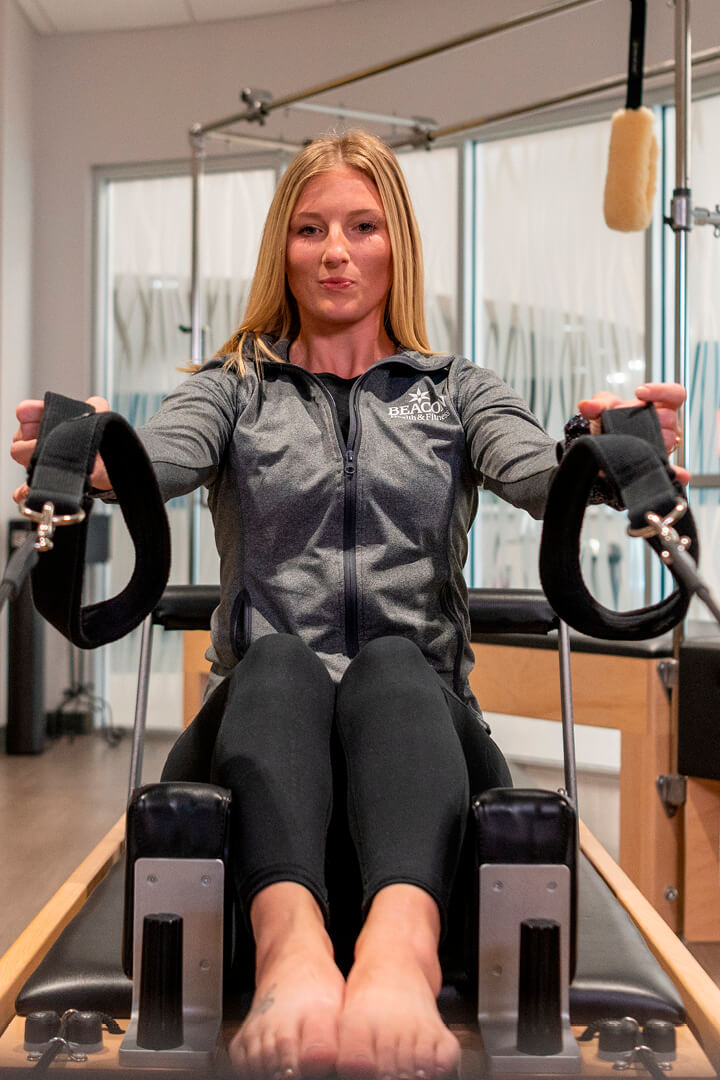Who doesn’t want to be faster? Whether you’re an avid racer or just starting out, these tips will help improve your performance and help you reach your personal best.
- Make sure you have the proper running gear.
The most important piece of running gear is your shoes! Shoes should be comfortable, lightweight, and have a wide toe box. A common mistake most people make is not replacing their shoes when they are worn. Shoes should be replaced about every 450-550 miles or when there are signs of excessive wear. - Strength train.
Many runners tend to avoid strength training because they are worried it will make them “bulky.” This is untrue. Strength training helps runners because it provides injury prevention, increased energy, increased bone density, and less body fat (if desired). Injury prevention is achieved by improving areas that might be weak, such as muscles, joints, and connective tissues. This makes the body more resilient for the demands of endurance running. Two to three strength training days a week have been shown to improve speed. - Focus on injury prevention.
That means rest and recovery work. Do not run every day. The body needs time for the muscles to build and repair. This does not mean you cannot be active on your “rest days.” Recovery work includes stretching and foam rolling. Tight muscles and inflexible joints lead to injury. Try to stretch and foam roll for at least 5 minutes most days. Foam rolling helps relieve tension in the muscles and increases the circulation to help the muscles recover or prepare for exercise. - Add tempo runs, sprints, and hill work.
By adding tempo runs to your routine, you will increase the pace that you can run before the lactic acid slows you down. Sprints are excellent for endurance runners because they help the body to learn to utilize energy faster. Running hills helps by building muscular strength, speeding up strides, and improving running economy. - Put an emphasis on your nutrition.
You can’t drive your car if there is no gas in the tank. Your body is like a machine and you must fuel it properly in order for it to work most efficiently. Endurance runners who run for more than 2 hours may also require additional nutrients during their runs. Some ways to make sure you’re adequately feeding your body for exercise include: talking to a registered dietician, using government resources such as myplate.gov, or finding a reputable app. - Drink more water.
Your body is 50-70% water. Water helps to remove waste (through urine and sweat), helps organs function, regulates body temperature, and protects joints. How much each person should drink each day varies, due to factors such as age, gender, and activity levels. According to the Institute of Medicine of the National Academies of Sciences, the proper amount of daily water intake is 2.7-3.7 liters. This amount includes water you drink, coffee, and water obtained through food sources. - Just get it done.
Consistency is key. We all have a case of the Mondays or lack of motivation from time to time. Don’t make excuses and stick to a schedule. Listen to your body when it needs rest, and push it when you feel good.
- Lindsay Sojka





